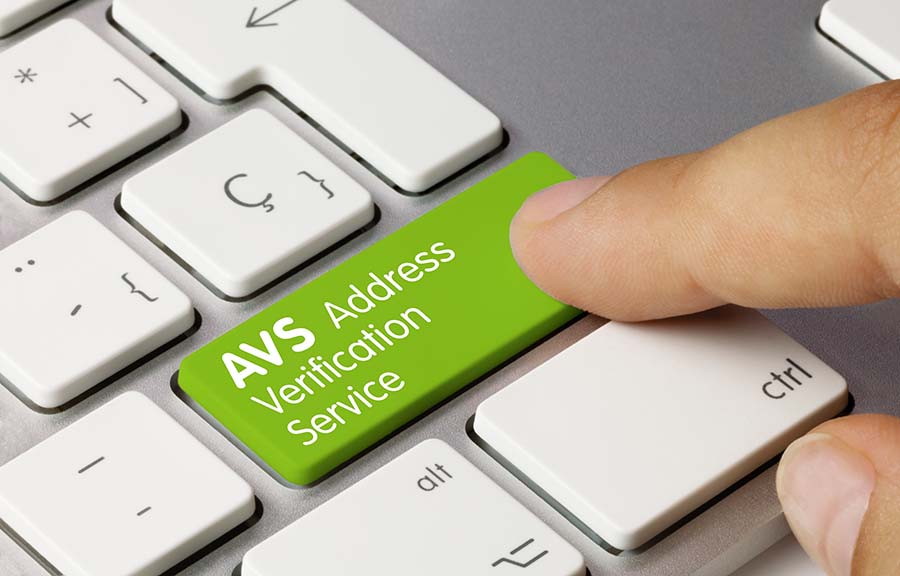Address verification services (AVS) are necessary in the world of ecommerce. Address verification service providers allow ecommerce businesses to verify the legitimacy of customers by confirming the accuracy of addresses.
Article at a glance:
- What are address verification services (AVS) and why are they essential for ecommerce businesses?
- How can a business leverage an AVS to enhance operations?
- What are the top features of address verification services that businesses need to be aware of and consider when choosing a new address verification service?
- The factors to consider such as defining their requirements, accuracy and coverage, scalability and integration capabilities, flexibility to handle increasing workloads, data security and privacy measures and pricing and support options.
- Choosing the right AVS can enhance operations, prevent fraud, improve customer satisfaction and support business growth in the ecommerce landscape.
Address verification services prevent fraud by confirming the validity of a customer’s address and noting any red flags.
AVS is a process that verifies the accuracy and validity of a physical mailing address. Individuals or businesses provide these addresses to ecommerce companies or banks. Companies and organizations that use AVS ensure that the addresses provided by the customer or client are valid and match the information on file. AVS usually uses a database of valid addresses to determine if the provided address matches the information associated with the client or customer. The verification process involves checking the street name, building number, city, state and ZIP code against the database. Another important aspect is that some AVS offers address format correction, identifying missing or incorrect elements and standardizing the address for consistency. These additional features help maintain a clean database and avoid inconsistencies that may cause issues and errors. In simpler terms, AVS is a process that helps companies and organizations ensure that the addresses provided by their customers are accurate and valid. This validation helps to prevent fraud and protect customers’ personal information.

Top features of address verification services
Address validation
Online address verification services validate and verify addresses in real time, ensuring they exist and are complete. This feature helps businesses eliminate errors and prevent the entry of incorrect or incomplete addresses.
Trustworthy validation saves businesses time and money while improving customer satisfaction. Delays and inconveniences occur when a business sends a package to an incorrect address, which is returned to the sender. A business must have complete or correct address information to contact customers effectively, leading to lost sales. Address verification services can help businesses avoid these problems by ensuring all address information is accurate and up to date.
Standardization
Address verification services standardize address data by correcting spelling mistakes, abbreviations and formatting inconsistencies. This standardization ensures that all addresses in a database follow a consistent format, which is essential for accurate data analysis and communication. Address verification services also improve data analysis accuracy. When data is standardized, it is easier to compare and analyze.
Autocomplete and suggestions
Address verification services often provide autocomplete and suggestions features that assist users in entering addresses correctly. As a user starts typing an address, the service suggests matching addresses, making data entry faster and more accurate. This is especially helpful for users unfamiliar with the address they are trying to enter or who are typing in an address not in their native language.
International address verification
Global address verification services support international addresses, which allows businesses to validate and verify addresses worldwide. This international verification is essential for businesses with a global customer base or those involved in international operations.
Batch processing
Address verification services often support batch processing, which allows businesses to verify and validate addresses in bulk. This feature is handy when dealing with large databases, data migration, or cleansing projects. Batch processing saves businesses significant time and money, allowing them to verify and validate many addresses simultaneously. Batch processing also helps to improve the accuracy of address data, as it can identify and correct errors that may have been missed during manual processing.
API integration
Address verification service API allows businesses to directly integrate address verification functionalities into their existing applications or systems. API integration facilitates seamless and automated address validation processes. APIs are rules that allow two pieces of software to communicate. When a business integrates an address verification API into its system, it can automatically verify the accuracy of addresses as they are entered into the system. This helps prevent errors and ensure that mail and packages are delivered to the correct address. APIs are used to update address information. If a business has a customer’s address on file but changes, the API will update the address automatically. This helps to ensure that customers always receive their mail and packages.
Change of address detection
Some address verification services include change of address detection features. These features flag addresses that have undergone recent changes, such as moves or address updates. The added detection helps businesses maintain accurate and up-to-date customer records. By keeping customer records accurate, businesses avoid sending marketing or promotional materials to addresses no longer in use. Change of address detection features are valuable for businesses of all sizes.
Compliance and security
Address verification services prioritize data compliance and security. Address verification services also regularly audit their systems and procedures to ensure that they comply with all applicable laws and regulations.
Choosing the right address verification service
There are six key components to consider when selecting an address verification web service for your business:
- Define Your Requirements
- Accuracy and Coverage
- Scalability and Integration
- Flexibility to Handle Increasing Workloads
- Data Security and Privacy Measures
- Pricing and Support Options

Let’s dig into each of these to help define what exactly your business needs to look for.
- Define your requirements – By defining essential requirements, the business looking for a new AVS can find the right fit. The step is to identify the business’s use case, understand its address verification needs and determine the integration requirements necessary to make this a smooth transition. Also, understand the type of AVS check your business requires.
- Accuracy and coverage – It is paramount to understand where the business’s key demographic resides. A company must check address validation accuracy rates, consider international address verification capabilities and assess the coverage of the address database when looking into an AVS.
- Scalability and integration – Businesses must look for scalability when choosing an AVS.The AVS should be able to grow with your business. It should be able to handle an increasing number of users, data and transactions. This goes along with compatibility. The software should be compatible with your existing systems. It should be able to integrate with your existing hardware, software and data. The company must also pay attention to APIs and integration options. The software should have APIs and integration
- Flexibility to handle increasing workloads – As the business grows, it is imperative that the AVS can handle and evolve with the growth. A quality AVS is customizable and flexible, allowing for tailored address verification rules. The system needs to possess configurable validation options and support unique address formats. A reliable AVS also allows for customizable address correction rules.
- Data security and privacy measures – Data security and privacy are essential to maintaining a safe and trustworthy online business. When looking at these features in an AVS, it’s crucial to look for encryption and data protection standards. It’s also necessary for the system to comply with data privacy regulations and have secure data handling processes. Finally, it’s essential that the system has a safe data retention and data deletion policy.
- Pricing and support options – As with anything in business, pricing is a crucial factor in all decisions and knowing there is a reliable support team. Look for transparent pricing models and cost-effective systems in an AVS. Also, evaluate the support channels available and the response time for questions and needs.

Address verification services offer a range of valuable features that can significantly benefit ecommerce businesses. This blog explored the top features of address verification services and discussed their importance in ensuring accurate and valid addresses. Harnessing the power of accurate addresses through an address verification service is crucial for businesses in today’s ecommerce landscape. By implementing a robust AVS and considering the top features discussed in this blog, businesses can enhance their operations, prevent fraud, improve customer satisfaction and unlock new growth opportunities.



